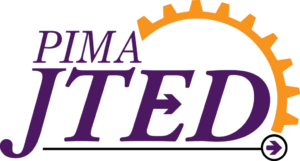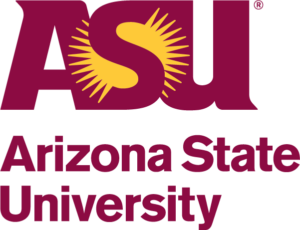EDUCATION
K-12 Educating the Next Generation
Education is a high priority in Southern Arizona. Complemented by a K-12 public education system of 63 districts with over 236,000 students as well as 149 charter schools and more than 117 private, self-regulating elementary and secondary schools, Southern Arizona’s well-developed education infrastructure maintains an open ear to the needs of the business community.
For 2023, charter school Basis Oro Valley and public school University High School ranked No. 21 and 25, respectively, and charter school Basis Tucson North ranked No. 53 on U.S. News and World Report’s list of the top 100 high schools in the country. Other highly-ranked schools in Arizona from U.S. News and World Report include Sonoran Science Academy and Catalina Foothills High School. In addition, Basis Tucson was lauded as a national model in education in the acclaimed documentary “Two Million Minutes: The 21st Century Solution.”
Primary, secondary, university, vocational, and continuing education institutions in Southern Arizona all contribute to the goal of providing a qualified workforce. The region’s educational system reflects the community’s diversity, offering programs at all levels that meet the needs of both student and employer.
Southern Arizona has a healthy high school graduation rate and growing college enrollment statistics. A highly educated population is an important attraction for companies that require a highly-skilled workforce. The amount of the population with bachelor’s degrees is an indicator that companies in high wage industries use to gauge the skill level of the local workforce. 62% of the population of all four counties in Southern Arizona have continued their education at the collegiate level, and 35% have an associate’s degree or higher.
To evaluate schools in Tucson and Southern Arizona, use myschoolstucson.org or www.educationevaluator.org
Joint Technical Education District (JTED)
 The Pima County JTED is a public high school district that offers premier, tuition-free Career and Technical Education programs to sophomores, juniors and seniors. They serve students from public, private, charter schools, and home-schools who have not earned a diploma or GED and are under the age of 22. Students may attend JTED classes at one of its Central Campuses, located throughout Pima County, or at one of the satellite locations which are located at all public high schools in Pima County, Santa Cruz County, and in the Mammoth-San Manuel area of Pinal County. Pima JTED’s innovative programs are designed to offer students the ability to earn industry-recognized licenses and credentials as well as dual college credit, to pave the way for further studies in college or immediate entry into the workforce utilizing exciting technology and equipment.
The Pima County JTED is a public high school district that offers premier, tuition-free Career and Technical Education programs to sophomores, juniors and seniors. They serve students from public, private, charter schools, and home-schools who have not earned a diploma or GED and are under the age of 22. Students may attend JTED classes at one of its Central Campuses, located throughout Pima County, or at one of the satellite locations which are located at all public high schools in Pima County, Santa Cruz County, and in the Mammoth-San Manuel area of Pinal County. Pima JTED’s innovative programs are designed to offer students the ability to earn industry-recognized licenses and credentials as well as dual college credit, to pave the way for further studies in college or immediate entry into the workforce utilizing exciting technology and equipment.
Higher Educational Institutions

The University of Arizona (UA), with a mission devoted to excellence in teaching, research, and public service, serves over 53,000 students. The UA is in the nation’s top 20 public research universities with more than $1 billion in total research activity (FY 2024). Reaching this milestone places the UA among a select group of top research institutions, including Stanford University, Duke University, Harvard University, the University of California, Los Angeles, the University of Florida, the University of Michigan, and the University of North Carolina.
UA awarded nearly 12,000 bachelor’s and graduate degrees in 2023. The UA College of Engineering is ranked in the top 30 nationally for undergraduate engineering programs. Arizona Center for Innovation, located at the UA Science and Technology Park, is a high-tech incubator that focuses on important developing areas including aerospace, advance composites, information technology and the life sciences. UA faculty and staff have developed more than 600 patents and 500 licenses; the university has also launched more than 135 startups, generating an economic output of $1.6 billion in the last five years (as of 2024). Learn more at arizona.edu.
For the latest rankings from the 2025 U.S. News and World Report Best Colleges, click here.
Source: UArizona Factbook

Recognized by U.S. News & World Report as the country’s most innovative school, Arizona State University is where Nobel laureates and Pulitzer Prize winners teach master learners. This is where nationally ranked and internationally ranked programs prepare next-generation innovators to thrive while advancing pioneering research, strategic partnerships, entrepreneurship and economic development.
ASU’s nationally ranked programs inspire the top-qualified graduates and have positioned the university as a “top-tier” recruiting and hiring institution by more than 50 of the country’s top corporations, according to professional recruiters and rankings services around the world.
ASU has had a presence in Tucson and the surrounding area for 40 years. Three areas of growing activity in the Tucson area are engineering, aerospace and defense, and biomedical—all of which are fields of great strength at ASU.
Partnerships in the Tucson area include Raytheon, which relies on ASU for the second-highest number of its engineers, the space exploration company World View and Roche Tissue Diagnostics, a company focused on tissue-based diagnostic solutions.
Learn more at asu.edu.

Pima Community College (PCC) serves approximately 39,000 students across the greater Tucson metropolitan area at its various locations conveniently spread throughout Pima County.
The College has a solid record of collaborating with local employers in southern Arizona to provide instructional and academic courses and programs in a variety of formats to develop human talent. PCC offers open-enrollment courses in classrooms, online, and in blended formats. PCC develops and delivers customized instruction to employers to train employees in the fastest and most efficient ways. PCC offers college credit, noncredit and continuing education unit (CEU) options. Any credit course that interests an employer can be customized into a non credit training, delivered on site and on the schedule the employer desires, at below-market price points.
PCC is committed to meeting the needs of community and industry partners by taking an employer-centered and innovative approach. PCC is a leader in workforce development in Southern Arizona with the commitment to creating a highly educated and skilled workforce that is prepared for the jobs of today and the future.
PCC has prioritized workforce development by investing approximately $100M to build six state-of-the-art Centers of Excellence throughout Tucson, Arizona that are focused on providing high-touch/high-tech training and best-in-class learning for in-demand jobs. The Centers for Excellence reflect the expectations, quality, and outcomes that regional employers need for a talented, diverse, and high-skilled workforce.
The Center of Excellence in Applied Technology has cutting-edge equipment and an industry-aligned curriculum that provides learners with experiential learning opportunities. This Center will also have a Flexible Industry Training (FIT) Lab wholly dedicated to employer-specific training. Also, it is designed to meet the ever-changing needs and technological advances of our employer partners. To build a strong talent pipeline for our industry partners, PCC offers multiple program options including robust micro-pathways, Certificates, and Associates of Applied Science.
Learn more at pima.edu.
Source: PCC Quick Facts
Connect With Us
Want to learn more? A member of Sun Corridor Inc.’s Business Development team will respond to any written inquiry within one business day.

